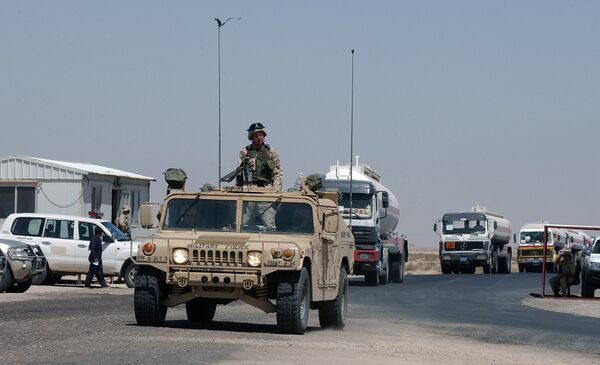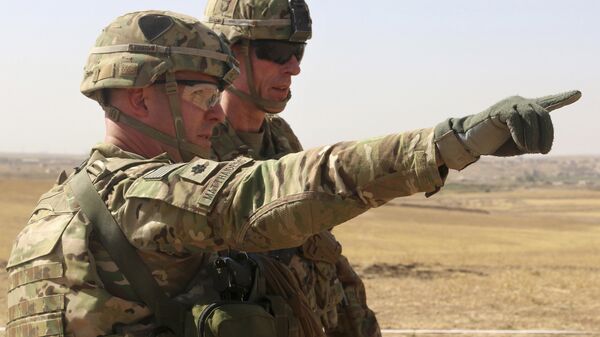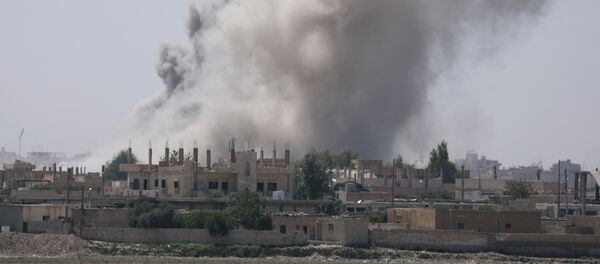On June 21, the US and China kick off the first Diplomatic and Security Dialogue (D&SD) which will bring together the country's senior diplomatic and military officials in Washington.
The United States will be represented by Secretary of State Rex Tillerson and Secretary of Defense Jim Mattis, who will meet with their counterparts, State Councilor Yang Jiechi and Chief of the People's Liberation Army (PLA) Joint Staff Department Gen. Fang Fenghui.
Reportedly, the North Korea issue and the fight against terrorism will become the focus of special attention. It is also expected that the White House will persuade China to adopt a more active approach to the matters.
"Neither side has released any official agenda to date, but issues on the agenda will likely include North Korea's ballistic missile and nuclear program, regional and global terrorism, maritime tensions in the South China Sea, and bilateral military-to-military cooperation," Ankit Panda of Diplomat.com wrote.
Speaking to Sputnik China, Azhdar Kurtov of the Russian Institute for Strategic Studies (RISS) pointed out that Washington wants Beijing to share the burden of fighting terrorism in Iraq with the United States.
At the same time, however, Washington intendeds to convince China, by hook or by crook, to play by US rules, Kurtov remarked, adding that the White House doesn't take Beijing's interests and nuances of diplomacy into account.
"The current state of affairs in Iraq was caused by the ill-considered [foreign] policy of the United States," Kurtov told Sputnik. "The implications [of this policy] remain unpredictable. In particular, Iraq is teetering on the brink of splitting into at least two states while a large part of the country is controlled by Daesh [ISIS/ISIL] units."
Given this, Washington is seeking someone who would share this burden with the US, and it appears that the White House views China as the best candidate for this task, the scholar noted.
However, it is unlikely that Beijing will buy into Washington's idea.
"I believe, however, that the Chinese leadership is wise enough to understand what games the US is playing," Kurtov said.
"The US still cannot eliminate Daesh in Iraq by military means. It seems unlikely that other countries will step in to help the US and shoulder the burden of possible combat losses, given the fact that they see how the US military machine is being defeated in the war on terror," the scholar underscored.

Russian military analyst Vladimir Evseev, the head of the Department of Eurasian Integration and Development of the Shanghai Cooperation Organization (SCO) at the Institute of CIS countries, echoed Kurtov.
Commenting on Thornton's statement, Evseev noted that it appears that the US wants China to pull its chestnuts out of the fire in the Middle East.
"The Americans are trying to shift some of their spending burden for the fight against terrorism to China," Evseev told Sputnik.
The military analyst called attention to the fact that the US sees its war on terror as part of its broader geopolitical plan in the region. Washington still supports various jihadi groups in Syria and it doesn't correspond to the national interests of Russia and China, Evseev noted.
"Therefore, it is unclear how far China is ready to go [to help the US] and whether it will provide such assistance to [Washington]," Evseev highlighted.
To Washington's apparent displeasure, Russo-Chinese counter-terrorism cooperation upsets the US "monopoly" on the "war on terror," including the issue of who could be designated as terrorist and who couldn't be. Furthermore, this collaboration bolsters the position of Moscow and Beijing in the global arena and, in particular, in the Middle East.
Yang Mian, an expert at the Center of International Relations at the Chinese Institute of Communications, emphasized that China and the US may team up to tackle the threat of terrorism only if the two countries will share a similar approach to this "evil."
"China and the United States are countries which were attacked by terrorists. The US desire to cooperate with China in the field of counter-terrorism could only be welcomed since it is impossible to solve the problem of terrorism single-handedly," Yang told Sputnik.
"At the same time, the US adopted a double-standard approach to the fight against terrorism. For example, the US is looking at the problem of terrorism in China through 'rose-colored glasses' and refuses to recognize its existence," the Chinese expert stressed.
"The United States and the West bear complete responsibility for the existence of terrorism in the modern world," Yang underscored. "Of course, China can assume responsibility [for the fight against terrorism], but the burden of responsibility borne by the United States cannot be discounted, especially since most of the terrorist attacks in the world are related to the double standards of the US and the West in combating this evil."




